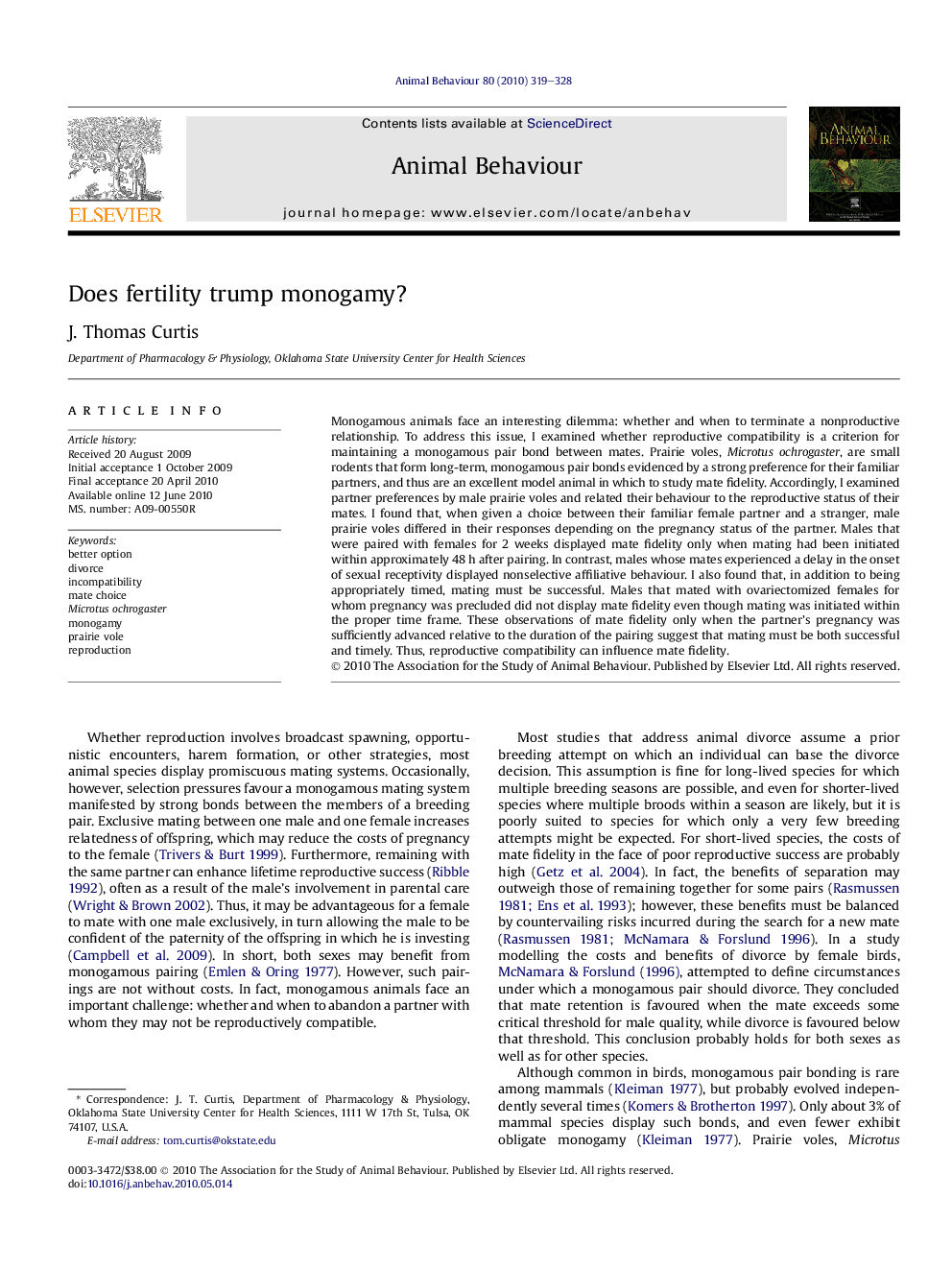| Article ID | Journal | Published Year | Pages | File Type |
|---|---|---|---|---|
| 2417152 | Animal Behaviour | 2010 | 10 Pages |
Abstract
Monogamous animals face an interesting dilemma: whether and when to terminate a nonproductive relationship. To address this issue, I examined whether reproductive compatibility is a criterion for maintaining a monogamous pair bond between mates. Prairie voles, Microtus ochrogaster, are small rodents that form long-term, monogamous pair bonds evidenced by a strong preference for their familiar partners, and thus are an excellent model animal in which to study mate fidelity. Accordingly, I examined partner preferences by male prairie voles and related their behaviour to the reproductive status of their mates. I found that, when given a choice between their familiar female partner and a stranger, male prairie voles differed in their responses depending on the pregnancy status of the partner. Males that were paired with females for 2 weeks displayed mate fidelity only when mating had been initiated within approximately 48Â h after pairing. In contrast, males whose mates experienced a delay in the onset of sexual receptivity displayed nonselective affiliative behaviour. I also found that, in addition to being appropriately timed, mating must be successful. Males that mated with ovariectomized females for whom pregnancy was precluded did not display mate fidelity even though mating was initiated within the proper time frame. These observations of mate fidelity only when the partner's pregnancy was sufficiently advanced relative to the duration of the pairing suggest that mating must be both successful and timely. Thus, reproductive compatibility can influence mate fidelity.
Related Topics
Life Sciences
Agricultural and Biological Sciences
Animal Science and Zoology
Authors
J. Thomas Curtis,
